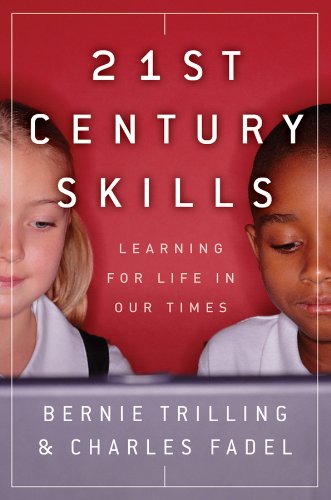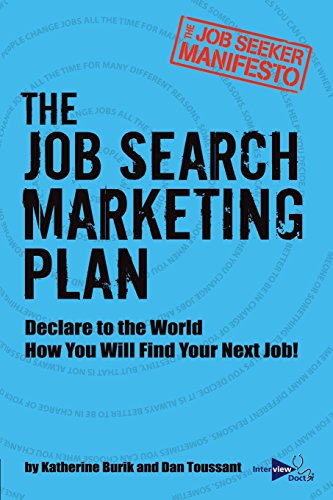We may earn a commission if you click on a product link and make a purchase at no additional cost to you. For more information, please see our disclosure policy.
Last Updated on April 18, 2025
Key Takeaways
- Know Your Strengths and Limits: Not every job will suit your abilities—recognizing what works for you helps narrow your options and focus your search.
- Consider Age and Time Investment: Some careers require years of
training ; your stage in life should factor into whether that path is realistic or rewarding. - Match
Skills With Enjoyment: Identify which skills you genuinely enjoy using daily to align your career with long-term satisfaction and motivation. - Start With Achievable Steps: If you’re lacking experience or qualifications, look for related roles that allow you to grow into your ideal job over time.
- Focus on Growth and Demand: Choose a career that balances personal interest with stability by targeting industries with strong future job prospects.
There’s a reason the world offers so many different careers—some are simply a better fit for your personality,
Some may argue that anyone can do any job with enough effort. While determination matters, the truth is that some roles remain out of reach no matter how hard you try. Physical demands, mental aptitude, and long-term commitment all play a part. So the real question becomes: which jobs are right for you? And more importantly, how do you figure that out?
Answering this question is key to finding a fulfilling career. Below are several important factors to consider as you work toward discovering your
Outline a proven job search strategy that works. You’ll find a process that results in a faster, less frustrating job search, maximizing your chances of finding a job you love.
Consider Your Age
Your age can play a surprisingly important role in determining which careers are realistic and achievable. Specific paths may be more difficult—or even impossible—to pursue depending on your stage of life. For example, becoming a professional athlete is typically not feasible after a certain age. How many 50-year-old pro athletes do you know?
On a more practical level, many careers require extensive education and
When you’re in your teens, twenties, or even thirties, committing to a long educational track might be realistic. But in your forties or fifties, sacrificing a decade of income and time becomes harder to justify. That doesn’t mean age is a barrier in every field—but it’s a factor worth considering when planning your career transition or reentry into the workforce.
Explains how to create a personal portfolio to document skills and knowledge when conducting a job search
Look at the Qualifications
Every profession has its own set of entry requirements—some are minimal, while others are intensive. Before pursuing any role, it’s essential to evaluate whether you can realistically meet the qualifications. For example, becoming a doctor requires a deep understanding of medicine and years of rigorous
Many people spend years—and thousands of dollars—pursuing degrees only to discover they’re unable to complete the coursework or pass the exams. Recognizing your limitations early on can save time, money, and frustration. But acknowledging a barrier doesn’t mean you have to abandon your dream career entirely. Often, there are more accessible paths that keep you aligned with your interests.
21st Century Skills: Learning for Life in Our Times explores the essential skills needed to thrive in today’s dynamic, technology-driven, and global economy.
Take healthcare as an example. If becoming a doctor feels out of reach, consider a more attainable alternative, such as becoming a certified nursing assistant (CNA). Resources can help guide you toward programs that prepare you for certification and start your career in a related, meaningful way. From there, you can gain experience and continue advancing within the healthcare field.
This approach applies across industries. If the qualifications for your ideal role are too demanding or not aligned with your strengths, don’t view it as failure. Instead, redirect your energy toward related roles that are more achievable but still fulfilling. It’s not about lowering the bar—it’s about finding a path that plays to your abilities and sets you up for success.
Think About Your Experience
Experience often matters as much, if not more, than qualifications when it comes to landing your
Let’s say you have a marketing degree and impressive
Your manifesto provides a unique approach to your job search reflected in your job search marketing plan
But lack of experience doesn’t mean the end of the road—it just means your timing needs to shift. Instead of aiming for top-tier roles right away, look for positions that allow you to grow into the job. Entry-level roles in the same department can serve as stepping stones. With each role, you build experience and expand your qualifications, making you eligible for advanced opportunities down the line.
Think of experience as a ladder rather than a wall. You may not qualify now, but with patience, persistence, and strategic moves, you’ll become a stronger candidate for your target role in the future.
Evaluate Your Work Environment Preferences
Knowing what kind of environment allows you to thrive can significantly impact your job satisfaction and long-term career success. Some professionals prefer structured, fast-paced corporate settings, while others excel in flexible, creative environments or mission-driven nonprofits. Consider factors such as
The Dream Job Catcher™ method is based on hundreds of high-caliber clients in tech who have made successful strategic career moves. These moves have changed their career trajectory, reinvigorated their passion, and empowered them to realize their full potential.
Identify the Skills You Enjoy Using Daily
When choosing a
- Creative
Skills : Includes writing, design, innovation, and content development for marketing or media-focused roles. - Analytical
Skills : Useful for data-driven roles in finance, tech, or research where logic and precision are key. - Interpersonal
Skills : Valuable in customer service, education, and healthcare, where communication and empathy are essential. - Organizational
Skills : Ideal for operations,project management , or administrative roles that rely on planning and efficiency.
This book provides diverse job seekers with the essential resources and techniques to develop a career plan, conduct a successful job search, and succeed in a diverse workplace.
Consider Long-Term Career Growth and Stability
While passion is essential, it’s equally crucial to evaluate a career’s growth potential and stability. Look at job trends in your chosen field—are they expanding or shrinking? For example, technology, healthcare, and renewable energy sectors are showing strong long-term growth, offering more opportunities and higher job security. When you align your interests with growing industries, you position yourself for advancement and resilience in a changing economy. A sustainable career combines what you love with what’s in demand.
Next Steps
- Reflect on Your Preferences: Take a moment to assess which environments, tasks, and responsibilities energize you versus those that drain you.
- Research Growth Industries: Use job trend tools, such as those from the Bureau of Labor Statistics or LinkedIn Insights, to explore industries with strong long-term
hiring potential. - Audit Your
Skills and Experience: Make a detailed list of your transferableskills and gaps, then match them to job descriptions in fields you’re exploring. - Explore Realistic Alternatives: If your dream role feels out of reach, look for parallel careers that still align with your interests and offer opportunities for advancement.
- Create a Career Action Plan: Set specific short-term and long-term goals with timelines to guide your progress and keep
your job search focused and strategic.
Final Words
Choosing the right career is a process of discovery, self-assessment, and strategic planning. By understanding your strengths, preferences, and limitations, you can eliminate mismatched roles and focus on opportunities where you’re most likely to succeed. Remember, your ideal job might not be a single role—it could be a path of progressive growth that leads to fulfillment over time. Stay flexible, stay informed, and make a commitment to continuous learning. With the right approach, you can create a career that is both meaningful and sustainable.
Whether you're applying to your very first job, are an established professional changing careers, or are a mature job candidate applying for the first time in years, this book will teach you how to communicate your achievements so you can get hired.
Related posts:
Mark Fiebert is a former finance executive who hired and managed dozens of professionals during his 30-plus-year career. He now shares expert job search, resume, and career advice on CareerAlley.com.














